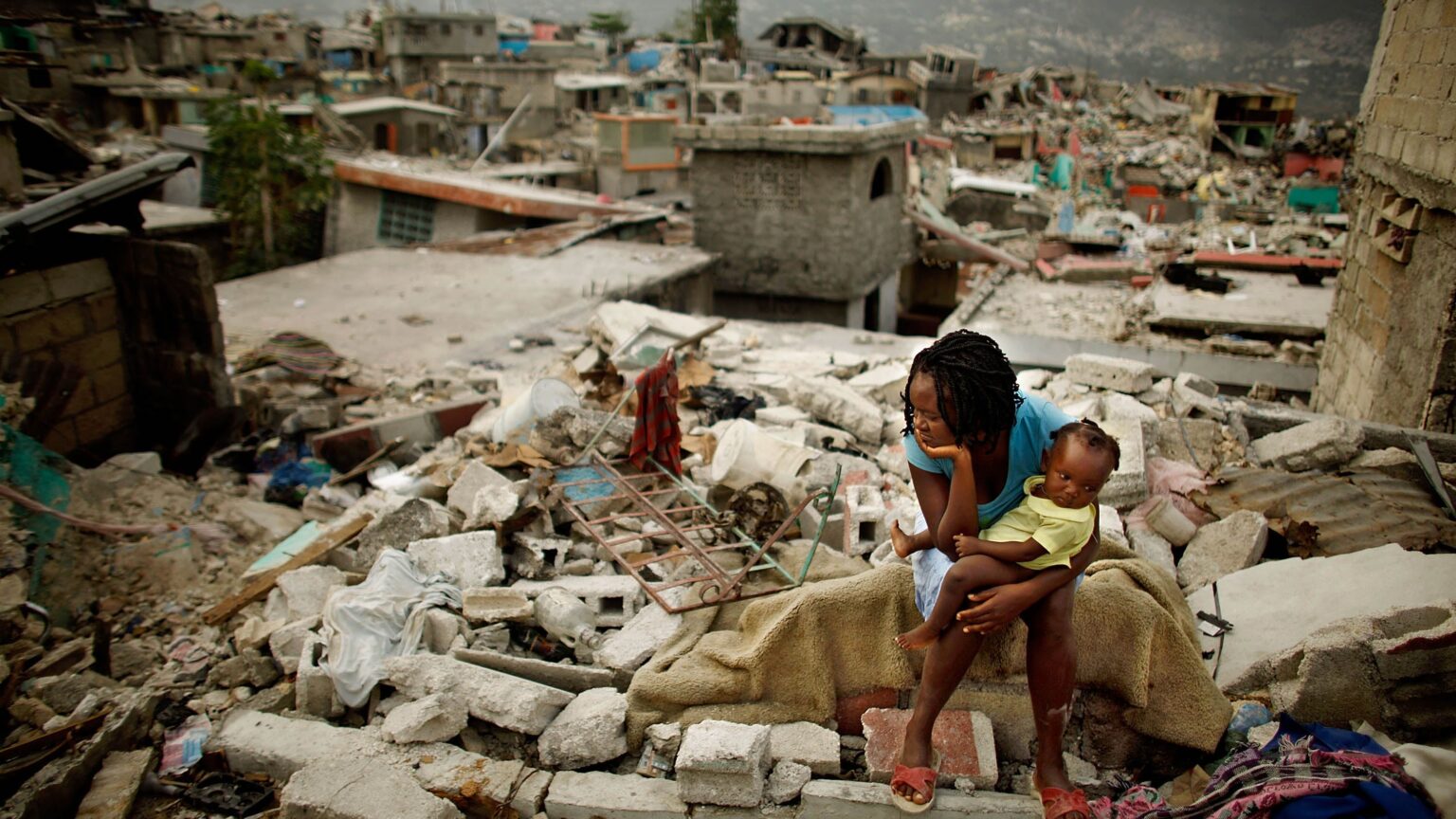Many Haitians gathered Tuesday at prayer services and private homes to mark the sixth anniversary of the country’s devastating earthquake and remember loved ones who died.
The Haitian government has said more than 300,000 people died in the 2010 disaster, but the exact toll is unknown because there was no systematic effort to count bodies during the overwhelming days that followed the quake.
Joseph Philistin brought his two sons to the grounds of the Sacred Heart Catholic church, one of thousands of buildings reduced to rubble when the magnitude-7.0 quake hit Port-au-Princeand surrounding areas. He came to mourn five relatives who were killed when their concrete home collapsed in the hard-hit Carrefour area.
“The memories of that day can’t ever be erased,” Philistin said as he joined a group of churchgoers shortly after dawn.
Nearby, Yvesrose Andre dressed entirely in white, a color associated with mourning in Haiti. She said she came to Tuesday’s Catholic Mass to honor all quake victims, including her two cousins.
“This is like our true day of the dead. It’s a day when people cried a lot,” Andre said quietly, turning rosary beads.
Tuesday was not a holiday in Haiti, as some quake anniversaries have been in the past, and Port-au-Prince’s streets were bustling with people and clogged with traffic as usual.
At a brief government ceremony on arid hills outside the capital President Michel Martelly placed a bouquet of white flowers at a mass burial site that’s been turned into an official memorial for those killed on Jan. 12, 2010.
As he walked out of the memorial surrounded by a scrum of journalists, Martelly said that a “lack of seriousness and planning helped this disaster magnify itself.”
“All of us Haitians everywhere have to see things differently and understand that it is our responsibility together to change our country,” said Martelly, who is constitutionally due to leave office Feb. 7.
Outside the memorial, Antoinise Excelet, one of roughly 250,000 displaced people who have settled precariously in the unregulated sprawl called Canaan near the burial site, said she had expected more progress toward reconstruction six years after the quake.
“I don’t think anything has changed in Haiti. It’s still the same hard place,” she said, carrying a bottle of moonshine and selling the occasional shot to the dozens of Canaan residents who gathered outside the memorial to catch a glimpse of Martelly, Prime Minister Evans Paul and other officials before they sped off in a motorcade.
As the nation of 10 million marked the anniversary, an electoral crisis threatened to undermine the long troubled country’s stability.
A presidential and legislative runoff is scheduled Jan. 24, but one of two presidential candidates is saying he won’t participate due to widespread suspicions of fraud and vote-rigging in an October vote. Electoral officials say candidate Jude Celestin’s name will still appear on ballots because he hasn’t officially withdrawn.
In a statement, U.N. Secretary-General Ban-Ki moon said the world body was mourning along with Haitians. Just over 100 U.N. personnel were killed in the Haiti quake, the single greatest loss of life during a single day the U.N. ever suffered. The 2010 quake toppled the Christopher Hotel, which housed the U.N. headquarters in Port-au-Prince.
He said Haiti continued to need international support and urged the country to “unite behind a vision for a stable, democratic and prosperous future.”
Since Sunday, 92 newly elected deputies and 14 senators have taken oaths of office, nearly filling Haiti’s Parliament and ending a year-long period where Martelly was ruling by decree. The first national assembly is expected to be held soon.
